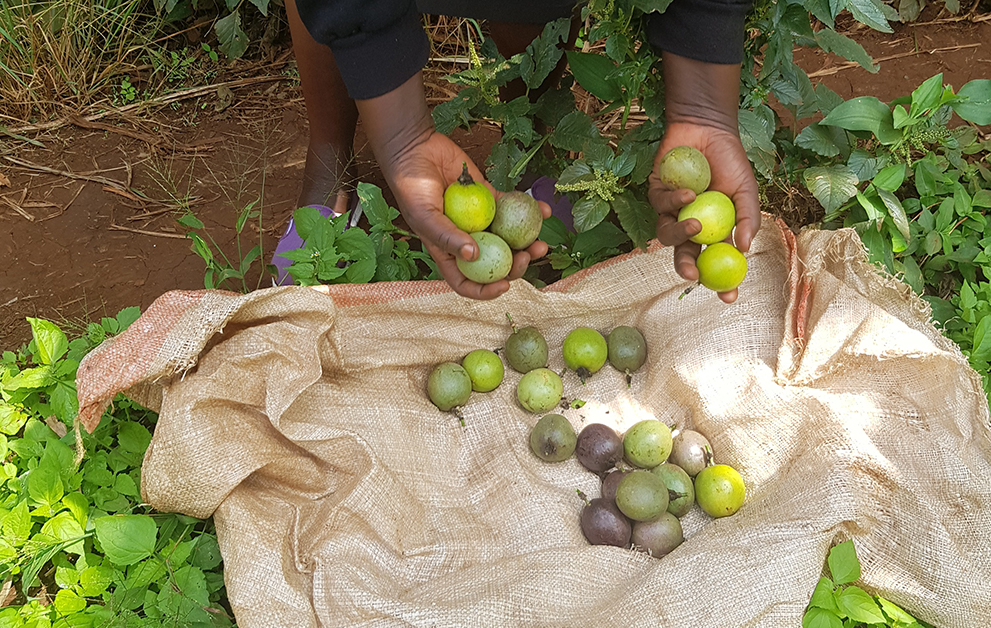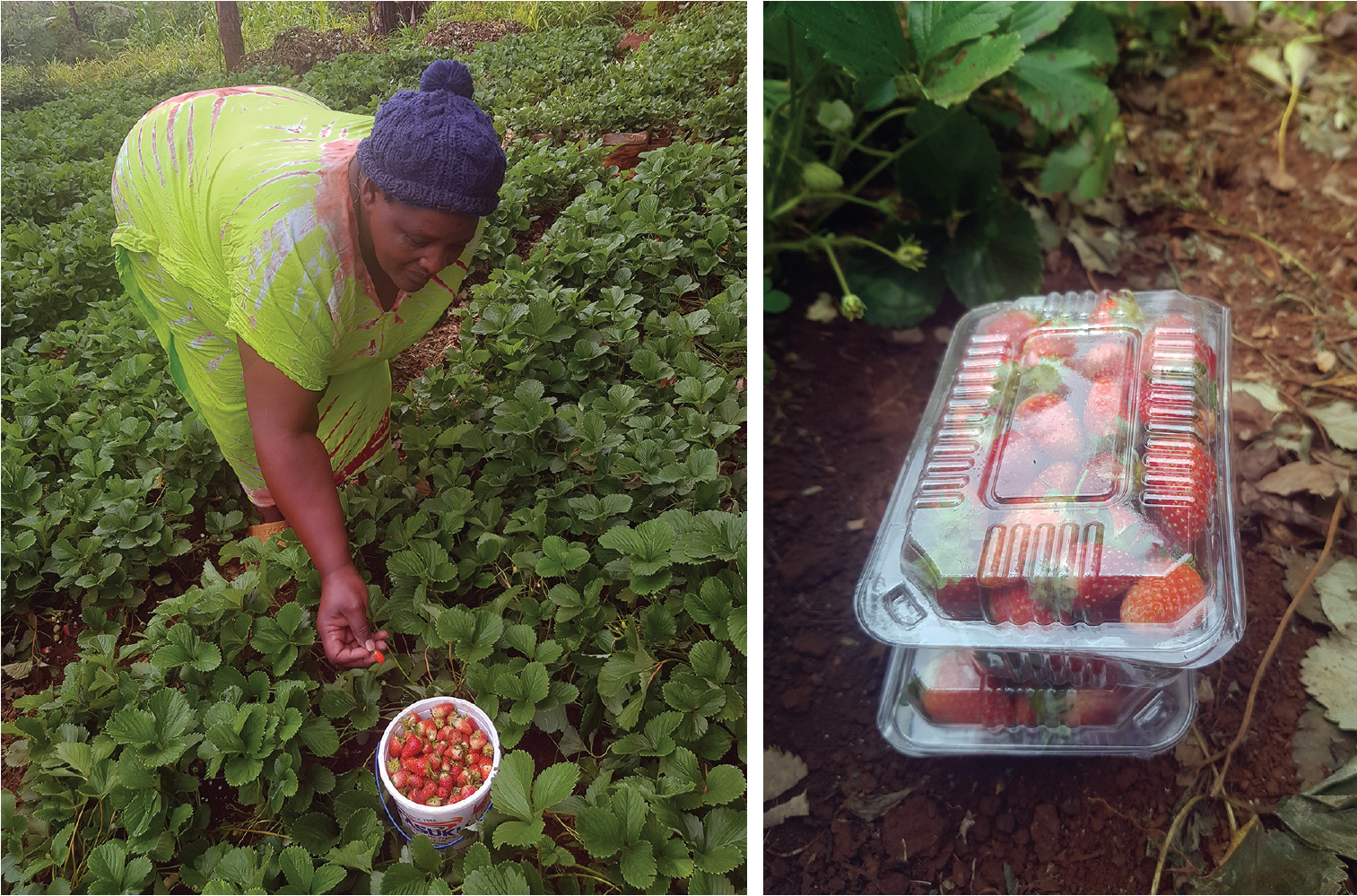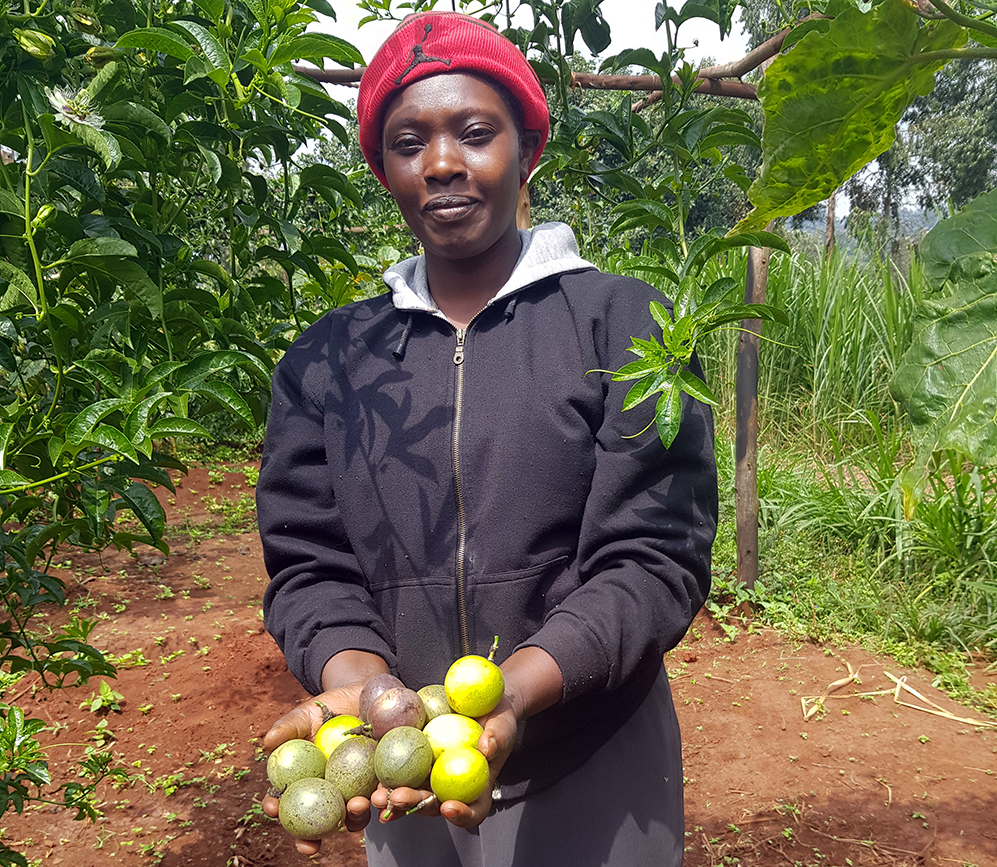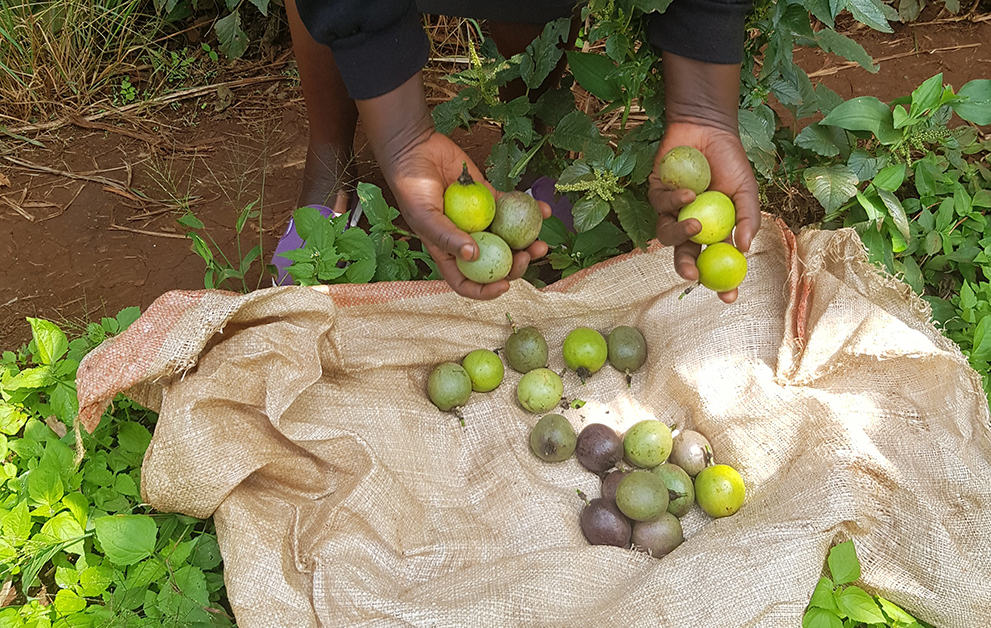
The diversity on these two farms is a departure from the typical farming practices in the region (and around the world). Rather than relying on just a few crops and being tied to expensive inputs like chemicals and seeds, Alice, Margaret, and Joseph are using a regenerative agriculture technique called the Forest Garden Approach.
Trees for the Future (TREES) provides farmers across sub-Saharan Africa with Forest Garden training. Forest Gardens are made up of thousands of trees and a diverse mix of food and resource crops. Farmers are able to increase their food and income while supporting the health of their land and the environment.
“It was a deal to join the TREES project,” Joseph says.

Joseph and other farmers in his group are part of TREES’ new Plant it Forward program – an initiative that began in 2020. TREES’ traditional training model is a four-year program. The organization has reached more than 25,000 farmers this way. And as the community of graduated Forest Garden farmers grows, farmers and staff saw an opportunity to reach more people with this life-changing training.
“By employing the skills of lead farmers and the top graduate farmers, TREES can scale quickly and replicate the Forest Garden with help from those who already understand the intricacies of transforming the land, because they have already accomplished it themselves,” said TREES Director of Programs Brandy Lellou when the program first launched.

Graduated farmers are given seeds and tools and paid a stipend to pass their knowledge on to other farmers in their community. Margaret, Joseph, and Alice are among 480 Ikinu, Kenya farmers who signed up to receive training through the Plant it Forward program at the beginning of 2021. In just a few months, the farmers have worked diligently to transform their land. As their soil health improves and their production increases, their access to nutrition and income increases too.
“Initially we relied on loans as funding sources for farm investments which we strained to pay back,” Joseph says. “But the Forest Garden is a profitable and growing business which provides its own income resources.”
Alice is taking advantage of the local demand for strawberries, a crop that is not widely grown in the region. She can harvest 30-50 small market containers worth of strawberries in a day. The strawberries sell for 50 – 70 cents (USD) per serving at market. Her strawberry production is going so well that she hires two or three people to help her on harvest days. Not only has Alice created more income opportunities for herself, she is saving money too.

“We adopted some techniques and other incredible ideas like composting during Forest Garden training,” she says. “This makes economic sense as we don’t use purchased chemicals… in addition, our customers are assured of food safety.”
The farmers are proving that the Forest Garden Approach is a sustainable and profitable way forward. Alice has been able to support her family after her husband lost his job due to COVID-19 closures. Margaret and Joseph’s Forest Garden is covering all of their household needs and all five of their kids are able to attend school.

In total, 3,200 farmers across Kenya, Uganda, Tanzania, and Senegal are enrolled in the Plant it Forward program this year. They’re on track to plant 4.8 million trees in their Forest Gardens in 2021. Be part of this sustainable solution to hunger, poverty, and land degradation. Help Trees for the Future Plant it Forward and become a monthly donor today.
